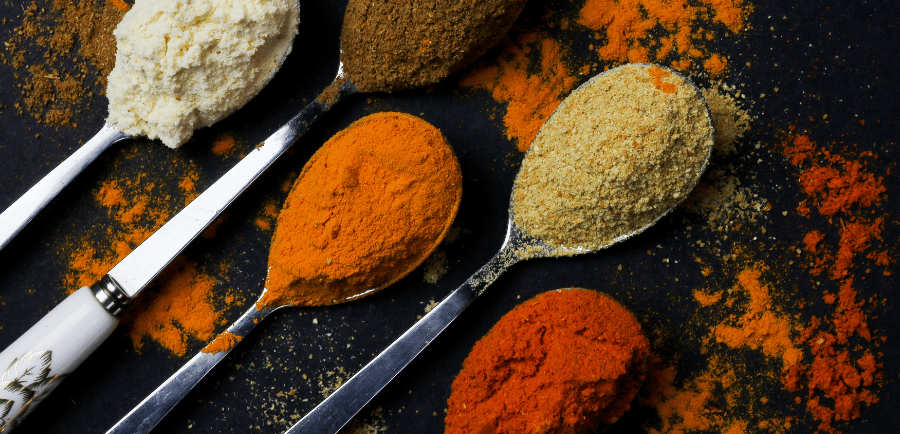Essential Spices Every Curry Lover Should Have
For any aspiring home chef or seasoned food lover, understanding these fundamental building blocks is key to unlocking authentic and delicious curry experiences.
6/23/20253 min read


Curry. Just the word evokes images of vibrant colours, intoxicating aromas, and layers of rich, complex flavour. But what truly transforms a simple dish into a magnificent curry masterpiece? The answer lies in the masterful blend of essential spices. For any aspiring home chef or seasoned food lover, understanding these fundamental building blocks is key to unlocking authentic and delicious curry experiences.
Forget generic "curry powder" for a moment – while convenient, the real magic happens when you understand the individual personalities of spices and how they dance together. Let's dive into the must-have spices that will elevate your curry game from good to absolutely glorious.
The A-Team: Core Spices for Every Curry Lover
These are your workhorses, the spices you'll reach for again and again. They form the aromatic foundation of countless curry recipes.
Turmeric (Haldi): This golden-hued root is more than just a vibrant colourant. Turmeric offers an earthy, slightly bitter, and subtly peppery flavour. It's renowned for its powerful anti-inflammatory properties and provides a crucial base note that rounds out other spices. A little goes a long way – too much can lead to bitterness!
Cumin (Jeera): Whether whole seeds or ground, cumin brings a warm, earthy, and slightly smoky aroma to your curry. Roasting cumin seeds before grinding them intensifies their nutty flavour, adding incredible depth. It's a non-negotiable for that authentic curry taste.
Coriander (Dhania): Both the seeds and the fresh leaves (cilantro) are indispensable. Coriander seeds, when ground, offer a mild, citrusy, and slightly sweet flavour that beautifully balances the earthiness of cumin and turmeric. Fresh coriander is typically used as a garnish to add a bright, fresh finish.
Chilli Powder (Lal Mirch): This is where you control the heat! Red chilli powder comes in various intensities, from mild Kashmiri chilli powder (known for its deep red colour and gentle warmth) to fiery hot varieties. It adds a crucial kick and helps to open up the other flavours in your curry. Experiment to find your preferred level of spice!
Ginger & Garlic Paste (Adrak-Lahsun Paste): While technically aromatics and not dry spices, fresh ginger and garlic form the aromatic backbone of most Indian and South Asian curries. Sautéing them at the beginning of your cooking process releases their pungent, warming, and slightly sweet notes, creating a deeply flavourful base.
Beyond the Basics: Adding Layers of Complexity
Once you've mastered the core, these spices will help you explore a wider spectrum of curry flavours and aromas.
Garam Masala: This ubiquitous spice blend is the "king" of Indian spices. While its exact composition varies by region and household, it typically includes cinnamon, cardamom, cloves, cumin, and black pepper. Garam masala is often added towards the end of cooking to preserve its delicate aromas and provide a warming, fragrant finish.
Cardamom (Elaichi): Available in green and black varieties. Green cardamom offers a sweet, floral, and slightly peppery taste with a hint of eucalyptus, perfect for both savory and sweet dishes. Black cardamom is larger, smoky, and more intense, often used in richer, heartier curries.
Cloves (Lavang): These dried flower buds boast a strong, sweet, and pungent flavour. Use them sparingly, as they can easily overpower other spices. Whole cloves are often used in tempering or in spice blends, lending a warm, aromatic depth.
Cinnamon (Dalchini): Whether in stick form or ground, cinnamon adds a warm, sweet, and slightly woody note. It's fantastic for balancing rich curries and pairs beautifully with both meat and vegetable dishes.
Fenugreek (Methi): Both the seeds and dried leaves (Kasoori Methi) are used. Fenugreek seeds have a slightly bitter, almost maple-syrup like aroma when cooked, adding a unique and essential flavour to many curries, especially lentil-based dishes (dals). Kasoori Methi offers a more herbaceous, slightly bitter, and aromatic finish.
Tips for the Savvy Curry Chef:
Freshness Matters: Spices lose their potency over time. Invest in whole spices and grind them yourself using a spice grinder or a pestle and mortar for the most vibrant flavour. Store them in airtight containers away from direct sunlight and heat.
Tempering (Tadka/Baghaar): This essential technique involves heating whole spices in oil or ghee at the beginning of cooking. It helps to release their essential oils and infuse the entire dish with their aroma and flavour.
Balance is Key: The art of curry making lies in balancing flavours. Don't be afraid to experiment, but start with smaller quantities and adjust to your taste.
Taste as You Go: Seasoning a curry is an ongoing process. Taste your curry at different stages of cooking and adjust the spices as needed.
Building a well-stocked spice pantry is an investment in your culinary journey. With these essential spices at your fingertips, you're well on your way to creating unforgettable, flavour-packed curries that will tantalise your taste buds and impress everyone at your table. Happy cooking!

